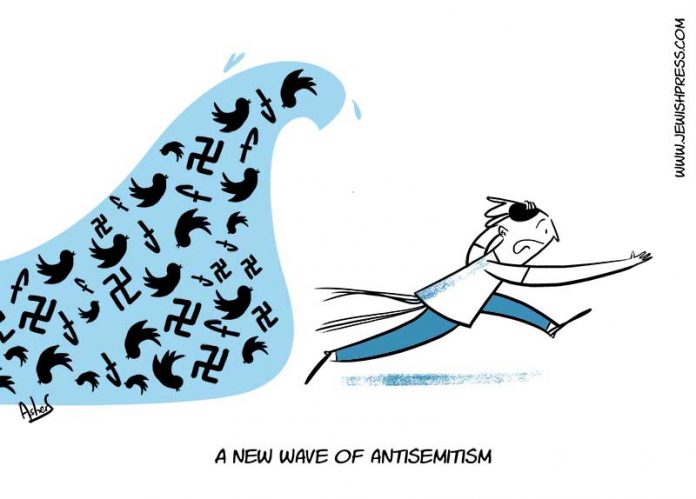Anti-Semitic hate crimes are not new. Ever since the FBI first compiled statistics on such crimes in 1992, America’s Jews have been their main target. Yet, the horrific events of the last few weeks – capping two years of escalating violence, mayhem, and murder – signal to us that we must escalate our hishtadlus.
The question of the day is: How can we protect ourselves?
‘);
_avp.push({ tagid: article_top_ad_tagid, alias: ‘/’, type: ‘banner’, zid: ThisAdID, pid: 16, onscroll: 0 });
First, we must understand that an attack on any Jew is an attack on all of us. Anti-Semites hate us all. We are all one – chassidic, yeshivish, Modern Orthodox, Conservative, Reform, or secular. Our enemies don’t differentiate between Jews. When fighting anti-Semitism, neither should we.
Second, “It won’t happen here” is a recipe for disaster. The Torah instructs us to build a ma’akeh, a guardrail, on every roof to prevent mishap. In 2020, a ma’akeh for a shul, shteibel, day school, or community center means basic security, including armed guards, and a comprehensive safety plan.
We must approach the current situation the way our forefather Yaakov did when he prepared for his confrontation with Esav. He didn’t rely on a miracle. He prayed to G-d for protection, but he also prepared an escape plan and a plan to fight.
There are three basic components to any security action plan: 1) instructions for how the tzibbur should react to an emergency; 2) a way of communicating during an emergency; and 3) the ability to lock down a place of worship.
Every hospital performs numerous emergency drills. They may be inconvenient and time-consuming but studies have shown that they save lives. When individuals don’t know what to do, they freeze. When they have gone through drills, they can jump into action.
Every Jewish institution in America, big or small, must appoint a director of security, a member who is well known in the community and will volunteer to dedicate his or her time to learn the basics of security and how to implement basic security tenets. The appointed individual should get trained in basic CPR and bleeding control. Additionally, he or she must coordinate with local, regional, and national groups.
The Department of Homeland Security is a powerful resource, which has information online for creating the basic tenets of an emergency action plan. Start with the free available information and go from there.
And the next time you’re in shul, a JCC, federation, or a Jewish school, look around you. If someone were to run into the hall or room with a gun or knife (G-d forbid), where would you go? What would you do? Can you lock the doors to the room, the shul, the main sanctuary? The children’s rooms?
If the answer is no, the first thing to do is look into ways of locking down rooms. If a terrorist is inside, perimeter security has already failed. It’s important that we have trained members monitoring the doors and perimeter for suspicious individuals. And if a congregant or security guard sees an evildoer approach with a gun (G-d forbid), there must be a way to communicate to the people inside, in real time.
We are not alone. 2020 America is not 1930s Germany. Your local police department is available to help explain to you what steps are necessary. Homeland Security and other federal, state, and local agencies provide funds to help pay for components of today’s ma’akeh. It is never too early to practice your emergency action plan. It could save lives.
There is also more we can all do to change the current toxic environment in many localities. We need to do better reaching out to our neighbors, helping the poor, the homeless, and the hungry whose struggles are all but invisible to us. That means forging new relationships with other religious communities and community leaders.
Jews cannot defeat anti-Semitism alone. We need our non-Jewish neighbors, the police, and especially elected officials – from City Hall to Capitol Hill – to know us, understand our needs, and help secure an environment that will allow Klal Yisrael to continue to flourish in communities across this great country. Do not wait for a crisis. If they understand the centrality of our shuls and yeshivot, they will be there for us in good times and, chas v’shalom, in times of crisis.
Most of all, we need a workable blueprint for every venue where our community gathers. Our religious leaders need to take the lead with these plans. We look to them for guidance and respect them tremendously; they should continue to exhibit leadership as we plan for our enhanced safety.
‘);
_avp.push({ tagid: article_top_ad_tagid, alias: ‘/’, type: ‘banner’, zid: ThisAdID, pid: 16, onscroll: 10 });




